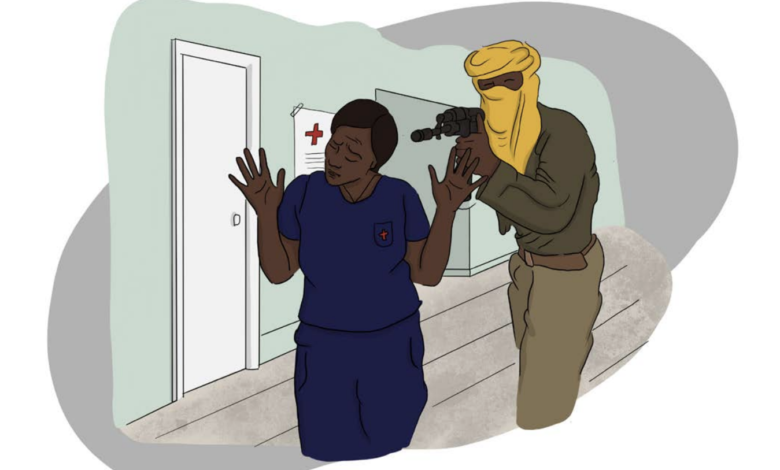49 Attacks On Health Facilities, Workers, Recorded In Nigeria In 2021– Report
The Safeguarding Health in Conflict Coalition (SHCC) identified 49 incidents of violence against health workers and health facilities in Nigeria in 2021, an increase from 43 such incidents in 2020.

A new report has revealed that 49 violent attacks against health care workers and the obstruction of health care occurred across Nigeria in 2021.
According to the Safeguarding Health in Conflict Coalition (SHCC), these incidents happened across 17 states, and nearly a quarter occurred in Borno State, northeast Nigeria.
Of the 49 incidents, 30 health workers, including medical doctors and laboratory technicians, were reportedly kidnapped across 13 states.
Health workers were kidnapped alone or in small groups. In one case, in July 2021, five health workers, including two nurses, were abducted by an armed gang that stormed the residential headquarters of the National Tuberculosis and Leprosy Centre in Kaduna State, northwest Nigeria.
The attackers killed four of the health workers and released ten after one to seven days of captivity. The fate of 16 others is still unknown.
On 11 occasions, health facilities were attacked, stormed, and damaged in Anambra State in the southeastern region, Benue and Nasarawa states in north-central Nigeria, Borno and Yobe states in the northeast, and Kaduna.
In all but one incident, health workers were unharmed. However, in March 2021, assailants attacked Niima Clinic in Kaduna, killing one health worker and injuring three others.
The report also showed that there were 13 incidents of health supply looting, with at least six health facilities set on fire in Borno and Yobe states, attributing it to members of ISWAP.
Impact on health systems
In 2021, violence against health workers and facilities significantly disrupted the health system across the country’s north-eastern states. For example, of the approximately 2,400 health facilities in Borno, Adamawa, and Yobe states, 48 per cent of them were not functioning.
In Gwoza and Pulka towns in Borno, the security situation worsened to the extent that Médecins Sans Frontières (MSF) suspended all its work there in Aug. 2021, closing a hospital in Pulka, and stopping anti-malaria treatment and obstetrical care in Gwoza.
No other Non-Governmental Organisations (NGOs) operate in the area, and thousands of people no longer have access to health care.
In one-third of the LGAs in the northeastern states that were visited by the SHCC’s protection monitoring teams from Nov. 2020, household members reported that they did not feel safe at the local hospitals.
Difficulties in accessing health care have also impacted the treatment of survivors of sexual violence, which could worsen the spread of sexually transmitted diseases.
Support Our Journalism
There are millions of ordinary people affected by conflict in Africa whose stories are missing in the mainstream media. HumAngle is determined to tell those challenging and under-reported stories, hoping that the people impacted by these conflicts will find the safety and security they deserve.
To ensure that we continue to provide public service coverage, we have a small favour to ask you. We want you to be part of our journalistic endeavour by contributing a token to us.
Your donation will further promote a robust, free, and independent media.
Donate HereStay Closer To The Stories That Matter




